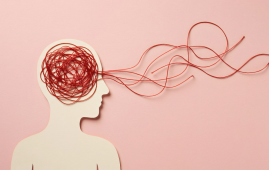

The term dementia does not stand for one particular disease; it stands for a collective behavioral change that impacts the thinking and decision-making ability of the elderly. Recently, the western world was re-introduced to Dementia when Hollywood actor, Bruce Willis, got diagnosed with an untreatable form of the condition, frontotemporal dementia. His family released a statement; “While this is painful, it is a relief to finally have a clear diagnosis. Today there are no treatments for the condition, a reality that we hope can change in the years ahead.”
What is Frontotemporal Dementia?
Frontotemporal dementia (FTD) is a group of neurological conditions that affect the frontal and temporal lobes of the brain. Some parts of these brain regions start to shrink in this kind of illness (atrophy).
Some people experience dramatic personality changes, and some even display impulsive or emotionally detached behavior that makes them socially inappropriate. According to the Mayo Clinic, some people also lose the capacity to speak clearly.
Symptoms of Frontotemporal Dementia
The symptoms of frontotemporal dementia include:
- Profuse sweating
- Increased sex drive
- Lack of personal hygiene
- Impaired judgment
- Lack of empathy
- Loss of interest in daily life
- Lack of motivation
- Broken speech
- Distraction
- Trouble being organized
- Mood swings
Is There Any Cure for Frontotemporal Dementia?
At present, there is no cure for frontotemporal dementia. However, different medications like anti-depressants and anti-psychotics are prescribed to the patients to alleviate the symptoms of the condition. There are therapists available to help patients with speech and behavioral changes.
How To Support Someone Suffering from Dementia
A person suffering from dementia has a hard time figuring out what is exactly going on. Sometimes clinical diagnosis also takes months and hundreds of tests. Bruce Willis was diagnosed with frontotemporal dementia almost a year after his Aphasia diagnosis. His family has said, “Today there are no treatments for the disease, a reality that we hope can change in the years ahead. As Bruce’s condition advances, we hope that any media attention can be focused on shining a light on this disease that needs far more awareness and research.” The patient deserves privacy and respect to cope with the changes that dementia brings. Also, supporting them with daily tasks like cleaning and eating can make their lives easier.
Is Dementia a Normal Part of Aging?
Dementia is not a normal part of aging. Aging brings changes like fatigue, tired muscles, and minor memory loss like misplacing the house keys. But aging does not bring major behavioral changes and loss of a huge chunk of memory. Dementia requires clinical support from therapists and doctors to manage the symptoms and make the patient’s life easier.
Dementia may not have any cure, but with on-time diagnosis and medical support, it is definitely a manageable condition. You can get more information about dementia by visiting: https://bit.ly/3Efl7br
more recommended stories
 Rising Measles Cases Prompt Vaccination Push in NC
Rising Measles Cases Prompt Vaccination Push in NCKey Highlights 15 confirmed Measles cases.
 High-Fat Diets Cause Damage to Metabolic Health
High-Fat Diets Cause Damage to Metabolic HealthKey Points Takeaways High-fat and ketogenic.
 Chronic Brain Compression Triggers Neuron Death Pathways
Chronic Brain Compression Triggers Neuron Death PathwaysKey Takeaways Chronic brain compression directly.
 Texas Medical Board Releases Abortion Training for Physicians
Texas Medical Board Releases Abortion Training for PhysiciansKey Takeaways Texas Medical Board has.
 Needle-Thin Brain Implant for Layer-Specific Brain Research
Needle-Thin Brain Implant for Layer-Specific Brain ResearchKey Takeaways Researchers have developed a.
 Pancreatic Cancer Research: Triple-Drug Therapy Success
Pancreatic Cancer Research: Triple-Drug Therapy SuccessKey Summary Spanish researchers report complete.
 Immune Cell Epigenome Links Genetics and Life Experience
Immune Cell Epigenome Links Genetics and Life ExperienceKey Takeaway Summary Immune cell responses.
 Chronic Pain Linked to CGIC Brain Circuit, Study Finds
Chronic Pain Linked to CGIC Brain Circuit, Study FindsKey Takeaways University of Colorado Boulder.
 High-Intensity Training and Oxidative Stress Insights
High-Intensity Training and Oxidative Stress InsightsNew Evidence Linking High-Intensity Training and.
 Perinatal Mental Health Challenges Highlighted in New Study
Perinatal Mental Health Challenges Highlighted in New StudyMental Health Challenges in New Parents:.

Leave a Comment